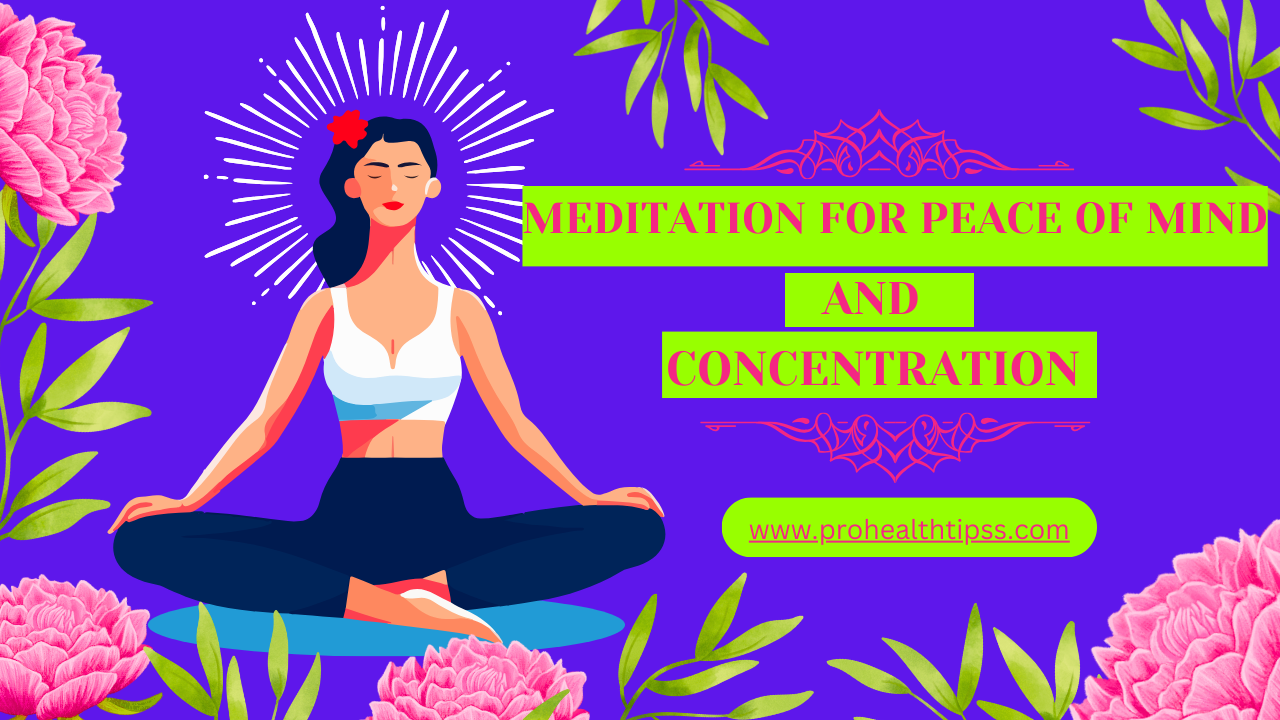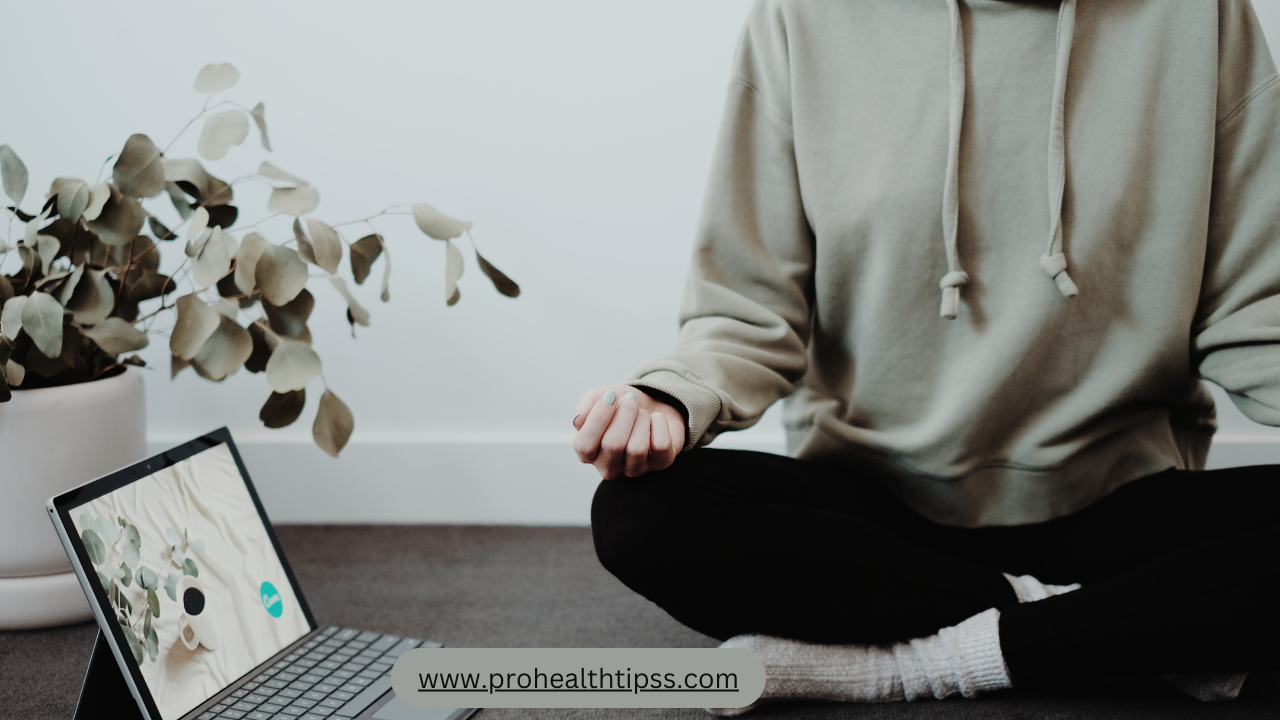Meditation for Peace of Mind and Concentration
Meditation is a technique that promotes inner serenity and cognitive clarity. It involves individuals focusing their attention or practicing mindfulness to engage in self-reflection and relaxation. This can be achieved through various methods such as concentrating on one’s breath, utilizing a specific mantra, or simply observing thoughts without passing judgment. Rooted in diverse cultural and religious traditions, meditation has gained widespread recognition for its manifold advantages, encompassing stress reduction, heightened emotional well-being, improved concentration, and a more profound connection with one’s inner self. In today’s fast-paced and tumultuous world, meditation serves as a peaceful refuge where individuals can discover solace, equilibrium, and a renewed sense of purpose.
What is Peace Meditation?
Peace meditation is a transformative practice focused on cultivating inner tranquility, harmony, and serenity within oneself and the world. The primary goal of peace meditation is to reduce stress, anxiety, and negativity while fostering a deep sense of inner peace, compassion, and interconnectedness with all living beings. Practitioners often engage in mindfulness, guided visualizations, or mantra recitations to quiet the mind and promote a sense of unity, not only within themselves but also with the broader human community and the environment. Peace meditation not only benefits individual well-being but also contributes to creating a more peaceful and harmonious world by radiating positive energy and intentions.
Why Should One Perform Meditation for Peace?
Performing meditation for peace is a valuable practice with several compelling reasons:
- Stress Reduction:
- Enhanced Emotional Well-Being:
- Increased Focus and Concentration:
- Improved Relationships:
- Better Health:
- Spiritual Growth:
Who Should Perform Meditation for Peace?
Meditation can be done by those people who are facing problems in their life like,
- worried person,
- troubled person,
- confused person, to reduce stress and to reduce depression.

Read More :- Does Meditation Really Work Click Here
Elements of Meditation
- Intention:
- Every meditation session should begin with a clear intention. Ask yourself why you are meditating. Is it to reduce stress, enhance focus, or seek spiritual insight? Setting a purposeful intention gives your meditation practice direction and meaning.
- Comfortable Posture:
- Find a comfortable posture that allows you to sit or lie down for an extended period without discomfort. Common meditation postures include sitting cross-legged on the floor, sitting in a chair, or lying on your back. The key is to maintain a straight spine while remaining relaxed.
- Focused Attention:
- Concentrate your attention on a chosen point of focus. This can be your breath, a mantra, a candle flame, or any object or thought that anchors your awareness. Focused attention helps quiet the mind and prevents distractions.
- Breath Awareness:
- Breath is a fundamental element of meditation. Pay attention to your breath as it naturally flows in and out. Observe its rhythm and sensations without trying to control it. Breath awareness helps calm the mind and connect with the present moment.
- Non-Judgmental Observation:
- Practice non-judgmental observation of your thoughts and feelings. Instead of resisting or reacting to them, acknowledge them with acceptance and let them pass without attachment. This cultivates inner peace and self-awareness.
- Patience and Persistence:
- Meditation is a skill that requires patience and persistence. Understand that the mind may wander, and distractions may arise. Return to your chosen point of focus gently and without self-criticism. Consistent practice leads to progress.
- Silence and Stillness:
- Create an environment of relative silence and stillness for your meditation practice. Minimize external distractions, and if possible, meditate in a peaceful space. Inner stillness is equally important, as it allows you to dive deeper into your meditation experience.
- Time Commitment:
- Dedicate a specific amount of time to your meditation practice. Whether it’s five minutes or an hour, regularity is more important than duration. Consistency in your practice is key to reaping its benefits.
- Gratitude and Positivity:
- Cultivate an attitude of gratitude and positivity in your meditation practice. Reflect on things you are thankful for and embrace a positive outlook. This mindset can enhance your overall well-being.
- Integration:
- The insights and calmness gained during meditation should ideally extend into your daily life. Strive to integrate the mindfulness and serenity you experience in meditation into your interactions, decisions, and activities outside of meditation.
Watch Meditation Video :
PROHEALTHTIPSS Suggestion
Meditation is a powerful tool for nurturing both peace of mind and enhanced concentration. By setting aside even a few minutes each day to meditate, you can create a mental sanctuary where the chaos of daily life can be momentarily put to rest. Through mindful breathing and focused attention, meditation soothes the mind, reduces stress, and promotes a sense of tranquility. With regular practice, you’ll find that your ability to concentrate and maintain focus in everyday tasks improves significantly, allowing you to navigate life’s challenges with a greater sense of calm and clarity.
Conclusion
Meditation is a powerful tool for achieving peace of mind and enhancing concentration. Through regular practice, individuals can cultivate a sense of inner calm, reduce stress, and sharpen their focus. By embracing the fundamental elements of meditation—intention, mindful attention, and patience—one can harness the transformative potential of this ancient practice to find serenity amidst life’s chaos and sharpen the clarity of their mind for improved concentration in both daily tasks and deeper contemplation.



